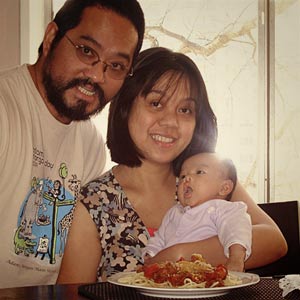What does it mean to be an American today?
 When I think about “American” I mean a regular, working class, middle class or poor person who struggles to make ends meet to take care of oneself or one’s family. I think about the vast majority of people in this country who are not part of the social and economic class who own much of the country’s wealth.
When I think about “American” I mean a regular, working class, middle class or poor person who struggles to make ends meet to take care of oneself or one’s family. I think about the vast majority of people in this country who are not part of the social and economic class who own much of the country’s wealth.
To be a regular, working or middle class American today is to feel powerless, disrespected, unrepresented in government and our democratic system, and to see our economic standing and prospects for the future deteriorate every year. Politics and democracy — instead of working to represent our interests, has been subverted by professional politicians, political consultants, and minions of the elite to a rigged game where no matter which political party wins, the elite, corporate interests, and people who profit from the way things are remain in charge.
In what ways are we divided as a country? Why do you think we are so divided?
Race, culture, social and economic class, gender, ideology, political party affiliation, geography, etc. all divide us. The people in charge and those who serve them are only too happy to exploit these divisions to keep themselves on top. Notice the types of strategies politicians and political consultants employ in elections where racial, economic, class, gender, ideological and cultural fears and resentments are unashamedly stoked and brought to the surface by campaigns as a way to bring in votes and support for candidates and political parties.
Getting beyond our divisions will require a change in attitude, outlook and worldview. Us ordinary folk need to recognize and see our common interests as ordinary people in the periphery of power, influence, wealth. Until that happens, it will be very easy for unscrupulous manipulators to exploit our divisions and to pit us against one another while they end up with all the spoils.
What unites us as a country?
One of my favorite stories is from the book by the late Studs Terkel, American Dreams: Lost and Found. It is the interview of a former Klansman, C. P. Ellis, which was illuminating in illustrating how poor and working class folk turn to extremism and hate as a way to cope with their powerlessness and economic insecurity in society. The story ends with him describing how working closely with a militant African-American woman in a local community school committee became a turning point for him in realizing how poor whites and African Americans can set aside their differences, work together and find common ground as poor and working class people to fight for their common interests. The interview ends with Ellis reflecting on how he found a newfound purpose working in the labor movement uniting blacks and whites in a common fight against exploitation and abuse in the workplace. He also reflects on developing an unlikely admiration and understanding for the speeches of Martin Luther King, Jr.
My point: a former Klansman like C.P. Ellis can made a drastic turnaround away from hate and extremism. He realized how hate and bigotry have been used as a wedge by the powerful to manipulate people and pit populations against one another. He found a way to unite with a formerly perceived enemy to work for common interests.
If the spirit of C. P. Ellis’ story can be replicated in today’s society, I have no doubt ordinary people can unite to become a potent and powerful force in society which will finally allow us to be heard, our interests to be represented in our political discourse and institutions, and our needs to be prioritized in how society allocates its resources.
Are you hopeful about the future? What are your fears?
I am hopeful about the future because the spontaneous eruption of the democratic spirit that have been happening in the Arab World, in Europe, and elsewhere has reached America. I am talking about social movements like Occupy which has introduced into the mainstream culture the seeds for solidarity among ordinary people as part of the 99 Percent who need to find common ground with one another and recognize the 1 Percent’s hold on power, wealth and disproportionate influence on our political and democratic institutions. I am also talking about the proliferation of grassroots organizations like the Coffee Party in the past several years, which aim to rejuvenate democratic participation in the U.S.
My fear was that the violent dismantling and dispersal of encampments nationwide spelled the end of the Occupy movement and any hope of a mass movement of ordinary people ever developing. But I feel hopeful once again to see offshoots of Occupy like the Rolling Jubilee and Occupy Sandy gaining momentum. The networks inspired by Occupy aren’t dead and they are taking on a life of its own.
What do you think are some solutions to our country’s challenges?
The first step is for ordinary Americans of all walks of life to realize their common interests in the way society, the economy and political institutions are structured and function — and for them to realize that they can unite to demand that these institutions, economy and structures be shaped and function for their needs and not just to accommodate the needs and greed of the wealthy and the powerful. When that type of spirit becomes commonplace and mainstream in American culture, that’s when things will start to change for the better for ordinary folks.
Please support Story of America with a tax deductible donation.
